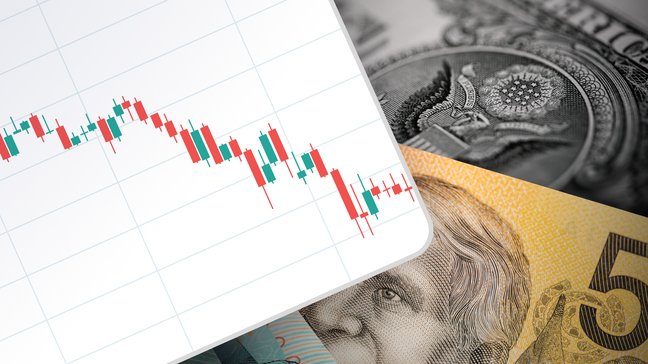Markets remain jittery, mostly downbeat, on early Tuesday as US data and Federal Reserve (Fed) officials’ comments keep the US Dollar on the front foot by defending the US central bank’s bias for “higher for longer” rates. It’s worth noting that the economic numbers and the central bankers outside the US haven’t been too optimistic and in turn join the US-China tension to also strengthen the risk aversion.
With this, the US Treasury bond yields and the US Dollar remain on the front foot while the riskier assets like commodities, equities and the Antipodeans hold lower grounds. That said, the AUDUSD aptly justifies its risk-barometer status while the Reserve Bank of Australia’s (RBA) dovish halt exerts additional downside pressure on the Aussie pair.
Further, NZDUSD fails to cheer improvement in the NZIER Business Confidence data for the third quarter (Q3) whereas Oil Price drops amid talks of receding demand and softer supply cuts in the future from the OPEC+ group. Additionally, the Gold Price renews the Year-To-Date (YTD) low whereas the Asia-Pacific equities edge lower even as the Wall Street benchmarks closed mixed.
Elsewhere, the BTCUSD and ETHUSD consolidate the previous day’s retreat from a seven-week high amid cautious optimism in the crypto markets.
Following are the latest moves of the key assets:
- Brent oil declines to a three-week low as energy sellers prod $91.00 during a four-day losing streak at the latest.
- Gold price declines to the fresh seven-month low of around $1,815 before bouncing off to $1,822 by the press time.
- USD Index stays defensive around 107.00 as we write, after refreshing the yearly high.
- Wall Street closed mixed but the Asia-Pacific stocks edged lower. However, equities in Europe and the UK remain inconclusive at the latest.
- BTCUSD and ETHUSD pare the previous day’s losses around $27,600 and $1,660 as we write.
King Dollar dominates
US Dollar Index (DXY) rose to the highest level since November 2022 before retreating from 107.21, mildly bid around 107.10 at the latest, as the risk aversion wave joins the hawkish Fed talks and the upbeat US data.
The spillover effect from the strong US Treasury bond yields weighs on the sentiment and underpins the US Dollar’s haven demand. On the same line were fears of contagion from China Evergrande's debt crisis. Also, the Biden administration warned China about more computer chip-making export curbs. The advance notice, however, joined the US policymakers’ invitation to China President Xi Jinping to the APEC summit in San Francisco in November to tame the risk-off mood.
On Monday, the US ISM Manufacturing PMI for September and the final S&P Global manufacturing PMI for the said month improved while those activity numbers for the UK, Germany and the Eurozone softened. That said, Bank of England (BoE) Policymaker Catherine Mann said that she saw more resilient domestic demand in the UK economy but failed to defend the British Pound (GBP).
Moving on, Fed Chairman Jerome Powell joined Governor Michelle Bowman and Vice Chair for Supervision Michael Barr to defend the US central bank’s hawkish bias. It should be observed that the Atlanta Fed’s GDPNow model keeps the growth estimate for Q3 unchanged at 4.9%.
Additionally, the Reserve Bank of Australia (RBA) kept the benchmark rates unchanged, as expected, and allowed the US Dollar Index (DXY) to refresh the yearly high as the recent US data and Fedspeak appear more hawkish. Further, European Central Bank (ECB) officials failed to defend the hawkish bias of the region’s central bank and weighed on the Euro, favoring the Greenback.
On a different page, chain data and ETF concerns allow the BTCUSD and ETHUSD buyers to remain optimistic despite the previous day’s fall.
- Strong buy: USDCAD
- Strong sell: ETHUSD, GBPUSD, Gold
- Buy: USD Index, Nasdaq, USDJPY
- Sell: DAX, FTSE 100, BTCUSD, AUDUSD, EURUSD
Nothing major to watch for the day…
Looking forward, a light calendar might allow the US Dollar bulls to take a breather and help the riskier assets to lick their wounds. However, hawkish Fed talks and pessimism outside the US can keep the Greenback as the market favorite.
May the trading luck be with you!




